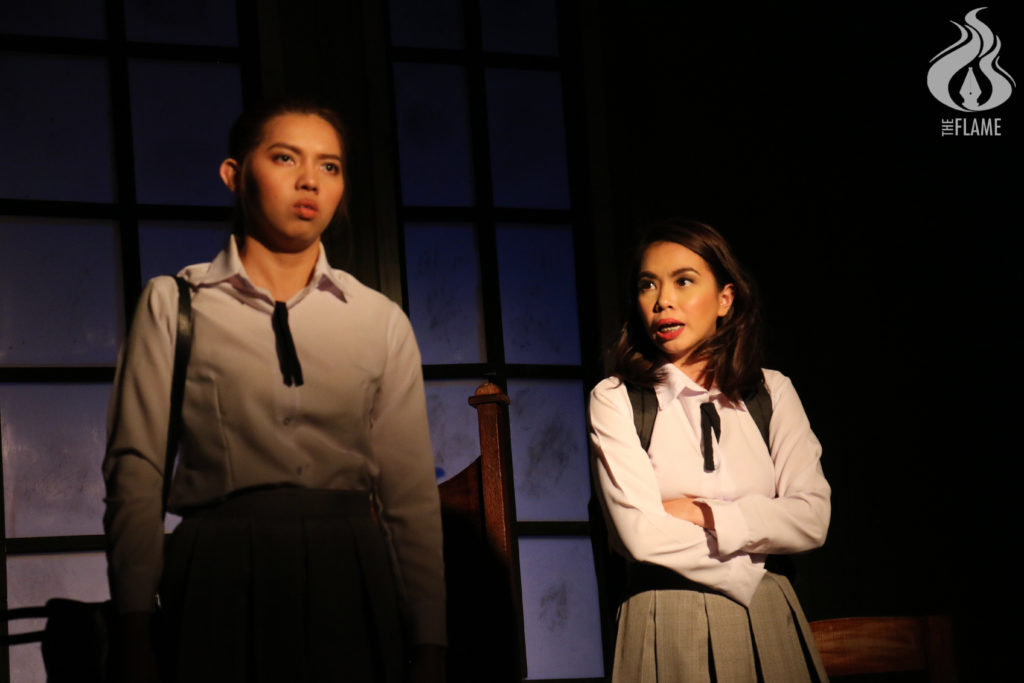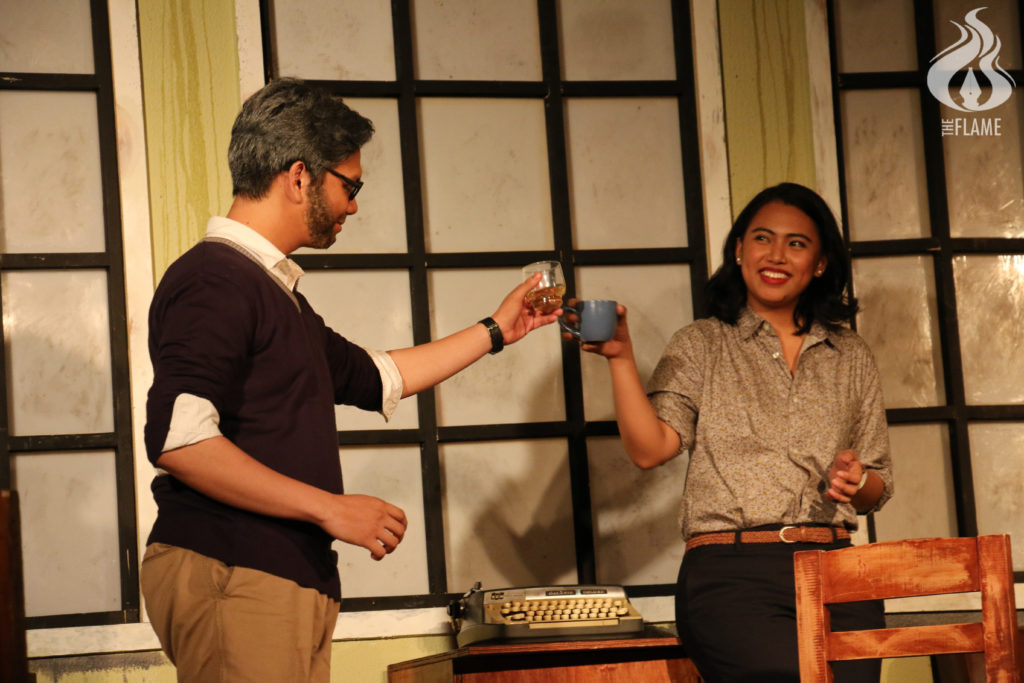By KRIZIA MAICA G. MAGBITANG
A CLASSROOM has always been a place that embodies a learning environment. It is where students come to study and where teachers come to impart knowledge and teach values. Teatro Tomasino’s twinbill production, Dismissal, alters this view and a classroom is no longer shown as a safe space.
Through Teatro’s two plays, the classrom transforms into a hostile place for underprivileged students and a setting for an old lovers’ unexpected reunion.

The first play, Isang Mukha ng Pandaraya written by Oggie Arcenas and directed by Leah Zamorras, tackles the paradox of inflicting justice and the inequality toward people with two different social standings in life. Amor Cruzado (Nathalie Estrada) files a case of Academic Dishonesty against her classmate Isadora Galvez (Samantha Pizzaro) when she allegedly caught her cheating during their exam.
Throughout the play, Isadora and Amor’s perspective when the cheating incident occurred are presented to the audience. Amor’s views are constantly superseded by Isadora’s since her lawyer, Atty. Charlie Castillo (Matthew Villareal), brings up Amor’s academic standing and her job as a prostitute into the issue despite deemed insignificant to the case by Amor’s lawyer, Atty. Roel Natividad (Mike Liwag).
The phrase “all are equal before the law” is proved untrue by the play, as the official judge for the case, Atty. Ernesto Vicencio (Nio Calonge) mostly favors Isadora since she is chosen as the summa cum laude, while Amor constantly falls behind her studies. With Isadora questioning the difference between her dishonesty and the morale of Amor’s profession, her act of righteousness towards Isadora proved to be hypocritical. As she imposes her own way of justice, in the end, Amor’s resiliency shines, although her conviction for fairness seems to have diminished and crumbled to dust by Isadora and Atty. Vicencio.

The second play, Sandaling Tagpo, starts off with an uncertainty as to what relationship does Prof. Manuel de Vera (Elijah Correa) truly has with his former protégé, Sylvia Domingo (Iris Montesclaros), when they meet again after several years. At first, there exists a wide distance between Manny and Sylvia when they meet and talk formally. They size up each other, looking at what has changed and what has not. The gap between the two closes once they unearth kept feelings from the past. Eventually, Sylvia and Manny’s own inner conflict at the present time resurfaces, overpowering the desire to rekindle their love.
In the eyes of the audience, the image of the two as a mere teacher and student diminishes. Looking intently at Manuel and Sylvia, one could only see two people madly in love who never took a chance. The relentless love both possess could only be left in nostalgia with the play’s end never giving a hint of reassurance or hope for the two to finally be together.
Isang Mukha ng Pandaraya points out society’s systemic injustice with an inevitable resolve by Amor in the end. In Sandaling Tagpo, the undeniable yet repressed passion between Manny and Sylvia is also breathtaking; playwright Jose Victor Torres’ sole focus on these two characters made the play to never lose grip on the couple’s evident passion. Director Lendro Enore further teases the audience as he lets the actors continually exude sexual tension in the atmosphere.
Overall, Dismissal delves into the pains of human relationships, one oppressive while the other romantic, with both bearing tragic truths that are often hard to swallow. F



